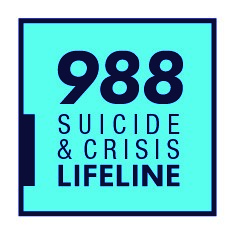
It was March 11, 2021—one year since the World Health Organization declared COVID-19 a global pandemic—and in those twelve months, emerging data from the Centers for Disease Control and Prevention showed that historic rates of mental illness, overdose deaths and deaths by suicide were soaring. Amid the horrific trends, the government decided to take action.
The National Suicide Prevention Lifeline was getting a makeover.
As part of the refresh, the 10-digit phone number was simplified to a succinct 9-8-8. The lifeline also added texting services, in addition to comprehensive mental health services beyond suicide prevention.
The program was supported with $200 million in funding through the Biden administration’s American Rescue Plan.
As the chief executive officer at Emergence Health Network in El Paso — which provides behavioral health, crisis response and other services to nearly 30,000 Texans a year — Daugherty said she was excited about the developments.
But then, political pressure hit a boiling point and the launch timeline got moved up by half a year, Daugherty told ABC News. For months, EHN hustled to staff up in the face of tight budgets and tighter deadlines, she says, they didn’t see a dime of federal support trickle down from Austin. The Texas Department of Health and Human Services did not respond to ABC News’ request for comment on Daugherty’s claim.
She’s not alone in her frustration.
In some critical ways, 988 has bolstered an American mental healthcare system that the Department of Health and Human Services itself has called “long underfunded and under-resourced.”
Since its launch in July 2022, the new hotline fielded over 2 million calls from people in crisis — 45% more than the 10-digit hotline over the same period in the previous year, according to data from Vibrant Emotional Health, the organization appointed by the federal government to oversee the line.
Vibrant says the hotline has also answered over 1 million chats and texts. Average wait times have dropped from nearly 3 minutes to less than a minute. Additionally, 988 has rolled out variations of the line specifically devoted to the care of at-risk groups like veterans, Spanish-speakers and LGBTQI+ youth.
Outcome data on emergency responses, referrals to outpatient mental healthcare or inpatient stabilization services is not immediately available, according to Vibrant. But Tia Dole, the chief 988 officer at the organization, said the service has helped many people who may not have elsewhere to turn for help.
In 2021, one American died by suicide every 11 minutes, over 12 million considered suicide, and suicide was the second-leading cause of death in most youth or young adults, according to the CDC. Over 100,000 more Americans died from drug overdoses, per National Institute of Health data.

